*NURSING > HESI > HESI Online Review for the NCLEX-RN Examination (2 Year), 3rd Edition Module 4 Exam (All)
HESI Online Review for the NCLEX-RN Examination (2 Year), 3rd Edition Module 4 Exam
Document Content and Description Below
HESI/Saunders Online Review for the NCLEX-RN Examination (2 Year), 3rd Edition Module 4 Exam 1. Module 4 Exam 1. 1.ID: 21083973130 A client with schizophrenia says, “I’m away for the day ... b... ut don’t think we should play or do we have feet of clay?” Which alteration in the client’s speech does the nurse document? Neologism Word salad Clang association Correct Associative looseness Rationale: Clang association is the meaningless rhyming of words in which the rhyming is more important than the context of the words. A neologism is a madeup word that has meaning only to the client. Word salad is the term for a mixture of meaningless phrases, either to the client or to the listener. Associative looseness is a term used to describe schizophrenic speech in which connections and threads are interrupted or missing. Test-Taking Strategy: Knowledge of the speech patterns exhibited by the client with schizophrenia is needed to answer this question. Focus on the subject in the question, the meaningless rhyming of words. Review: these speech patterns . Reference: Varcarolis, E., & Halter, M. (2009). Essentials of psychiatric mental health nursing: A communication approach to evidence-based care (p. 281). St. Louis: Saunders. Level of Cognitive Ability: Applying Client Needs: Psychosocial Integrity Integrated Process: Communication and Documentation Content Area: Mental Health Giddens Concepts: Communication, Psychosis HESI Concepts: Cognition Awarded 100.0 points out of 100.0 possible points. 2. 2.ID: 21083973127 A client with schizophrenia and his parents are meeting with the nurse. One of the young man’s parents says to the nurse, “We were stunned when we learned that our son had schizophrenia. He was no different than from his older brother when they were growing up. Now he’s had another relapse, and we can’t understand why he stopped his medication.” Which response by the nurse is appropriate? Telling the parents, “Medication noncompliance is the most frequent reason that people with this diagnosis relapse.” Telling the parents, “Well, it’s his decision to take his medicine, but it’s yours to have him live with you if he stops the medication.” Asking the client, “How can we help you to take your medicine or to tell us when you’re having problems so that your medication can be adjusted?” Correct Saying to the parents, “Your concerns are appropriate, but I wonder whether your son was having trouble telling someone that he had concerns about his medication.” Rationale: The therapeutic response is the one in which the nurse models speaking directly to the client. This facilitates further assessment of the situation and helps elicit the causes of and motivations for the client’s behavior for both the nurse and the family. In the correct option, the nurse also seeks clarification of the degree of openness and mutuality felt by the client and his family toward each other. The nurse provides information to the family when stating that noncompliance is the most frequent reason for relapse in people with this diagnosis. However, the statement is nontherapeutic at this time because it does not facilitate the expression of feelings. The nurse uses a superego style of communication when stating, “Well, it’s his decision to take his medicine, but it’s yours to have him live with you if he stops the medication.” The content of this statement may be true, but it is nontherapeutic in that it carries a threatening message and may prevent the family from trusting the nurse. By stating, “Your concerns are appropriate, but I wonder whether your son was having trouble telling someone that he had concerns about his medication,” the nurse gives approval and prematurely analyzes the client’s motivation without sufficient assessment. Test-Taking Strategy: Use your knowledge of therapeutic communication techniques and remember to focus on the client’s feelings. Also note that the correct option is the only option in which the nurse directly addresses the client. Review: therapeutic communication techniques . Reference: Stuart, G. (2009). Principles & practice of psychiatric nursing (9th ed., pp. 27-31). St. Louis: Mosby. Varcarolis, E., & Halter, M. (2009). Essentials of psychiatric mental health nursing: A communication approach to evidence-based care (p. 297). St. Louis: Saunders. Level of Cognitive Ability: Applying Client Needs: Psychosocial Integrity Integrated Process: Communication and Documentation Content Area: Mental Health Giddens Concepts: Adherence, Psychosis HESI Concepts: Adherence, Cognition Awarded 100.0 points out of 100.0 possible points. [Show More]
Last updated: 1 year ago
Preview 1 out of 87 pages
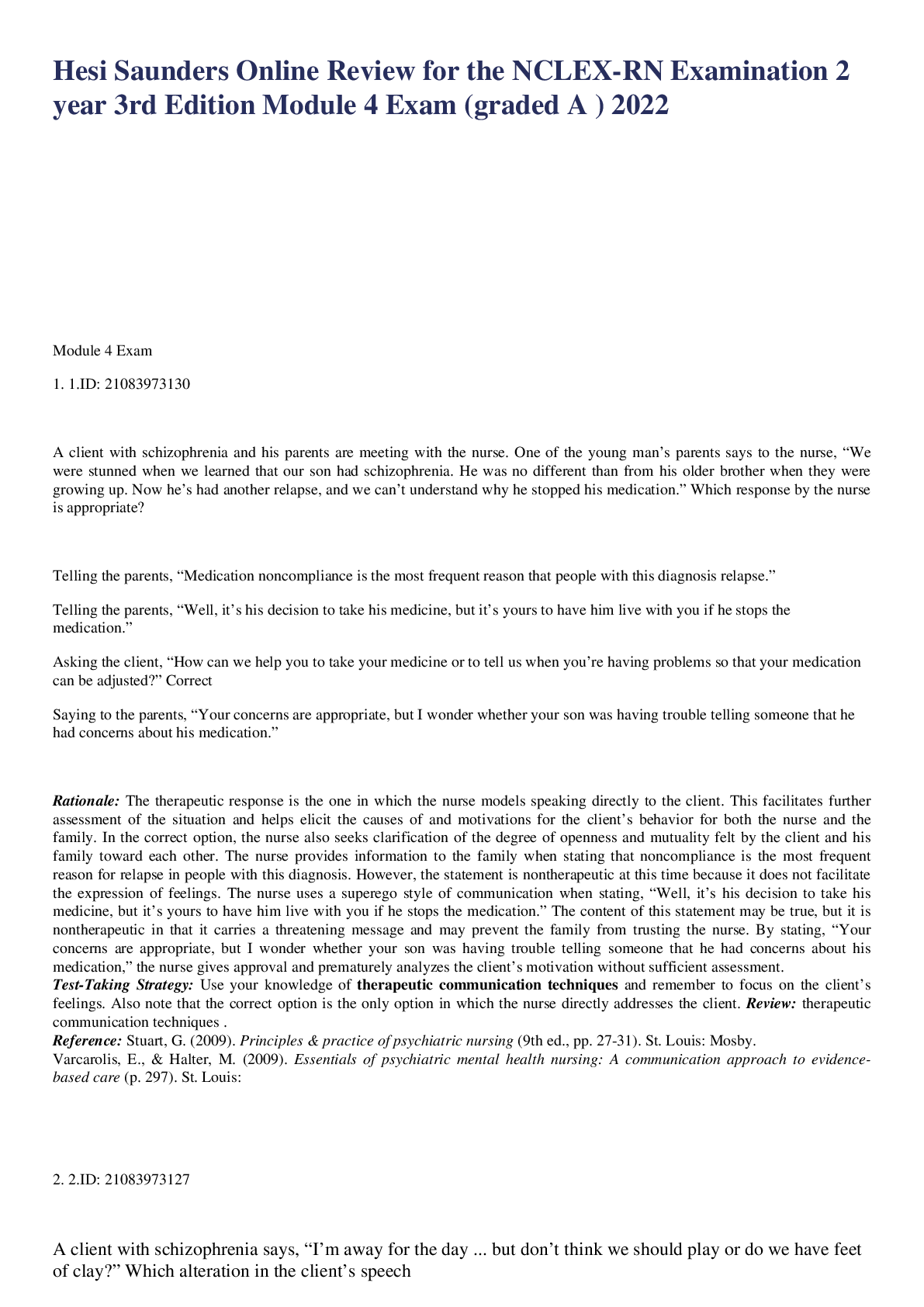
Reviews( 0 )
Document information
Connected school, study & course
About the document
Uploaded On
Sep 07, 2022
Number of pages
87
Written in
Additional information
This document has been written for:
Uploaded
Sep 07, 2022
Downloads
0
Views
138

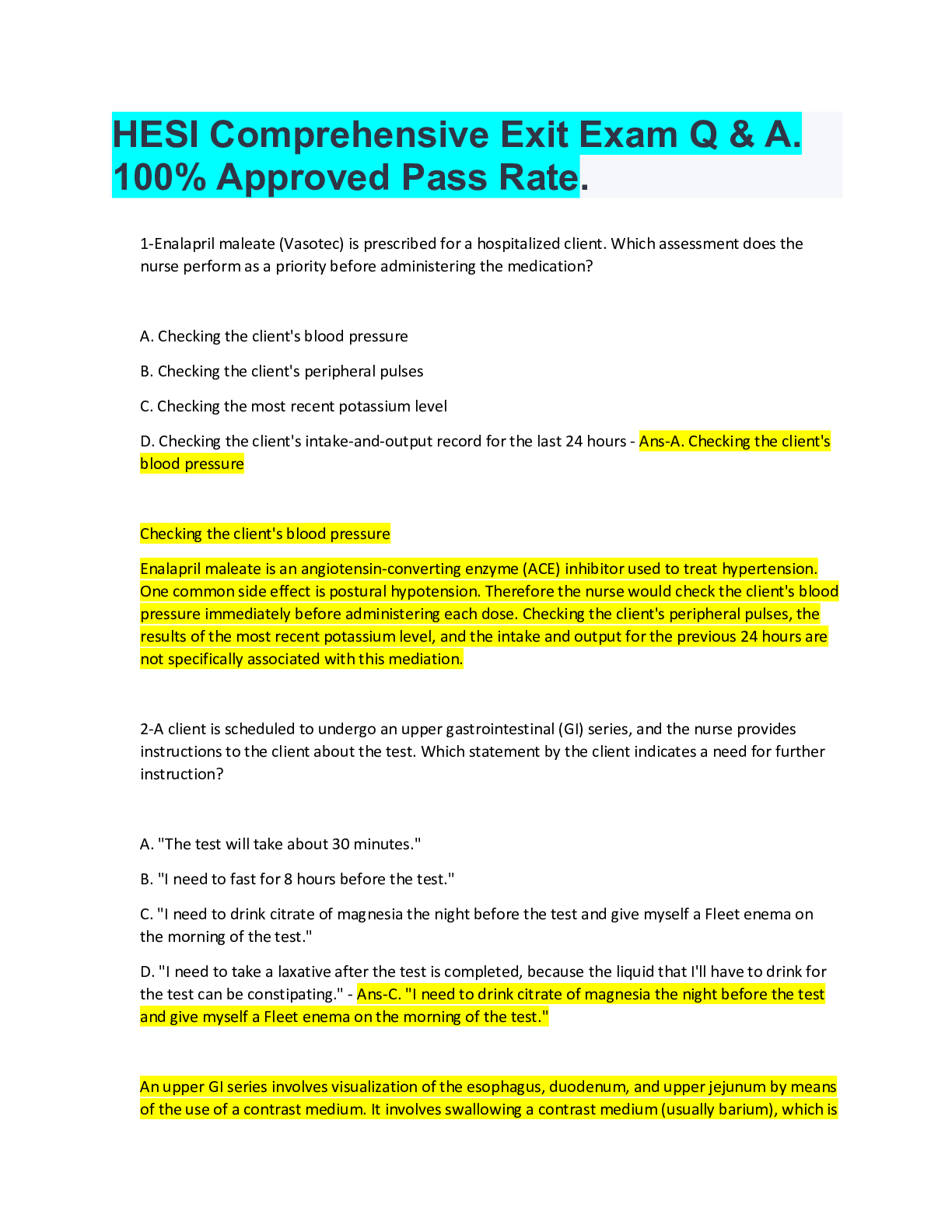
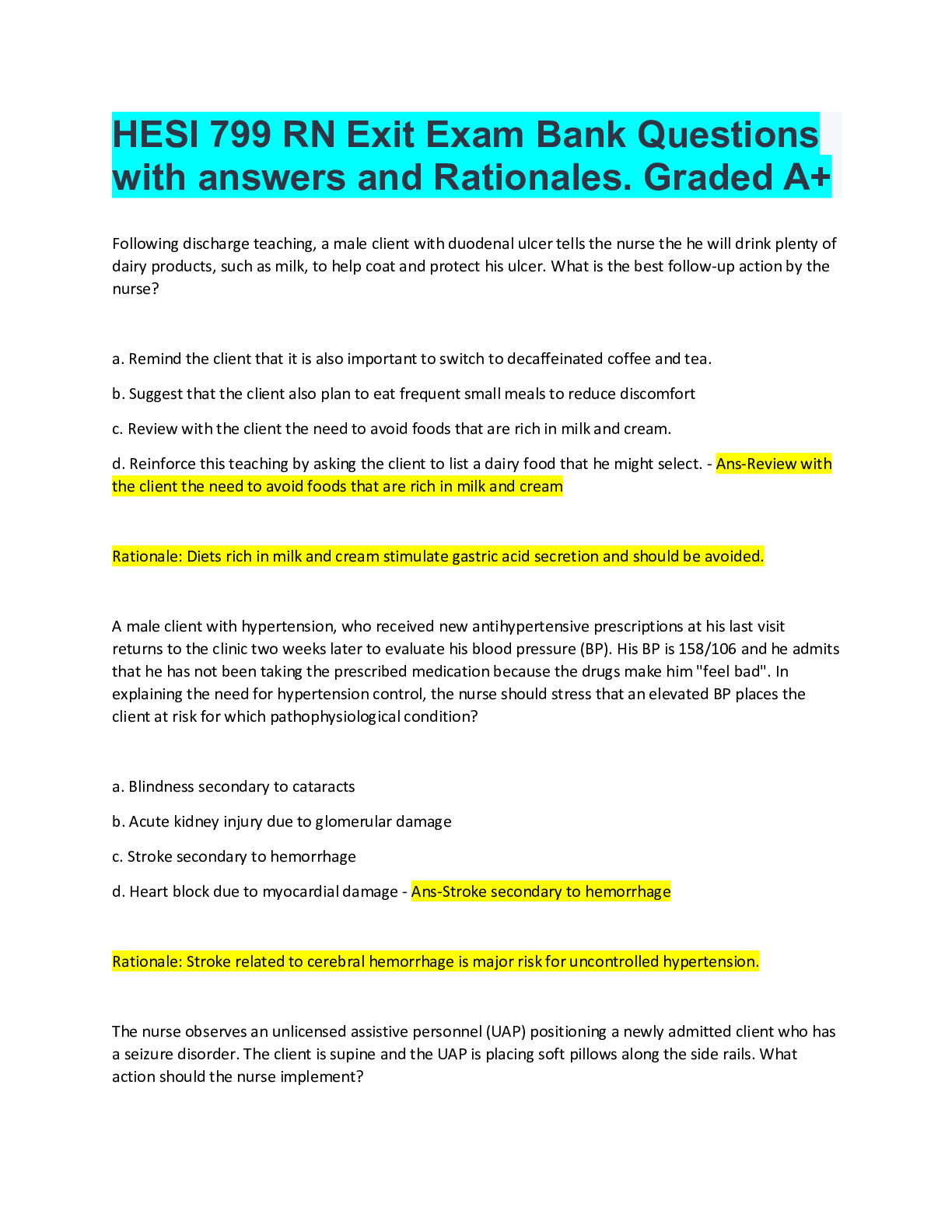
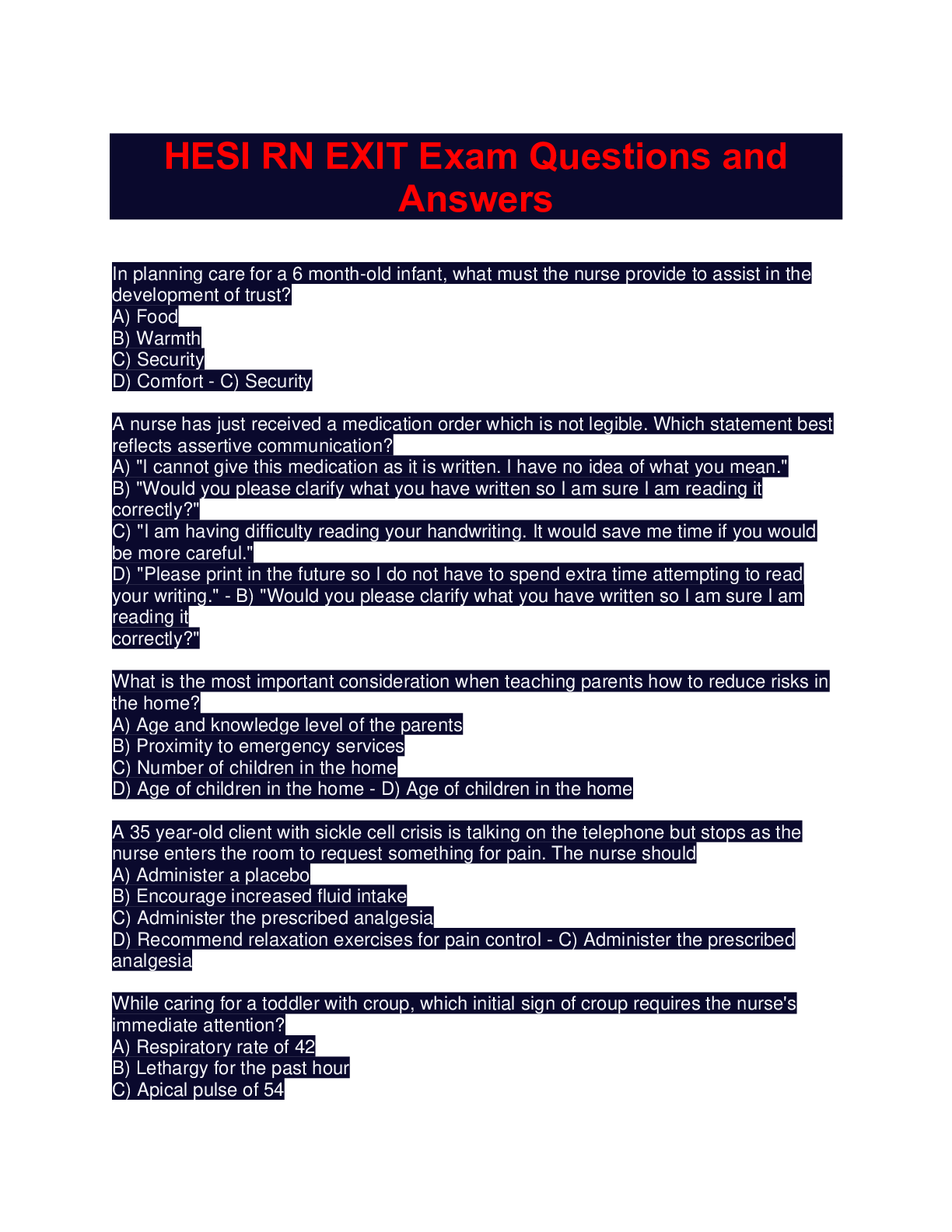

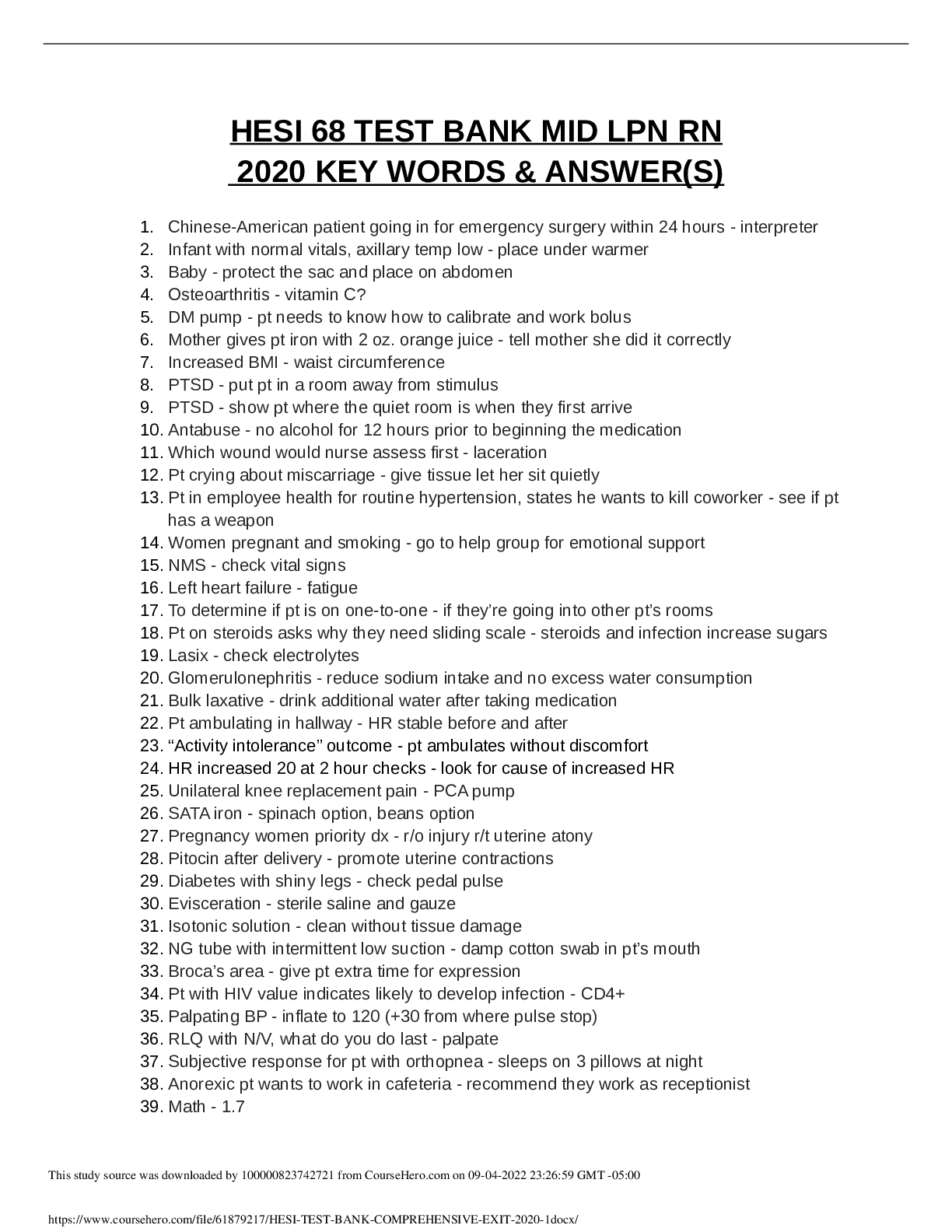
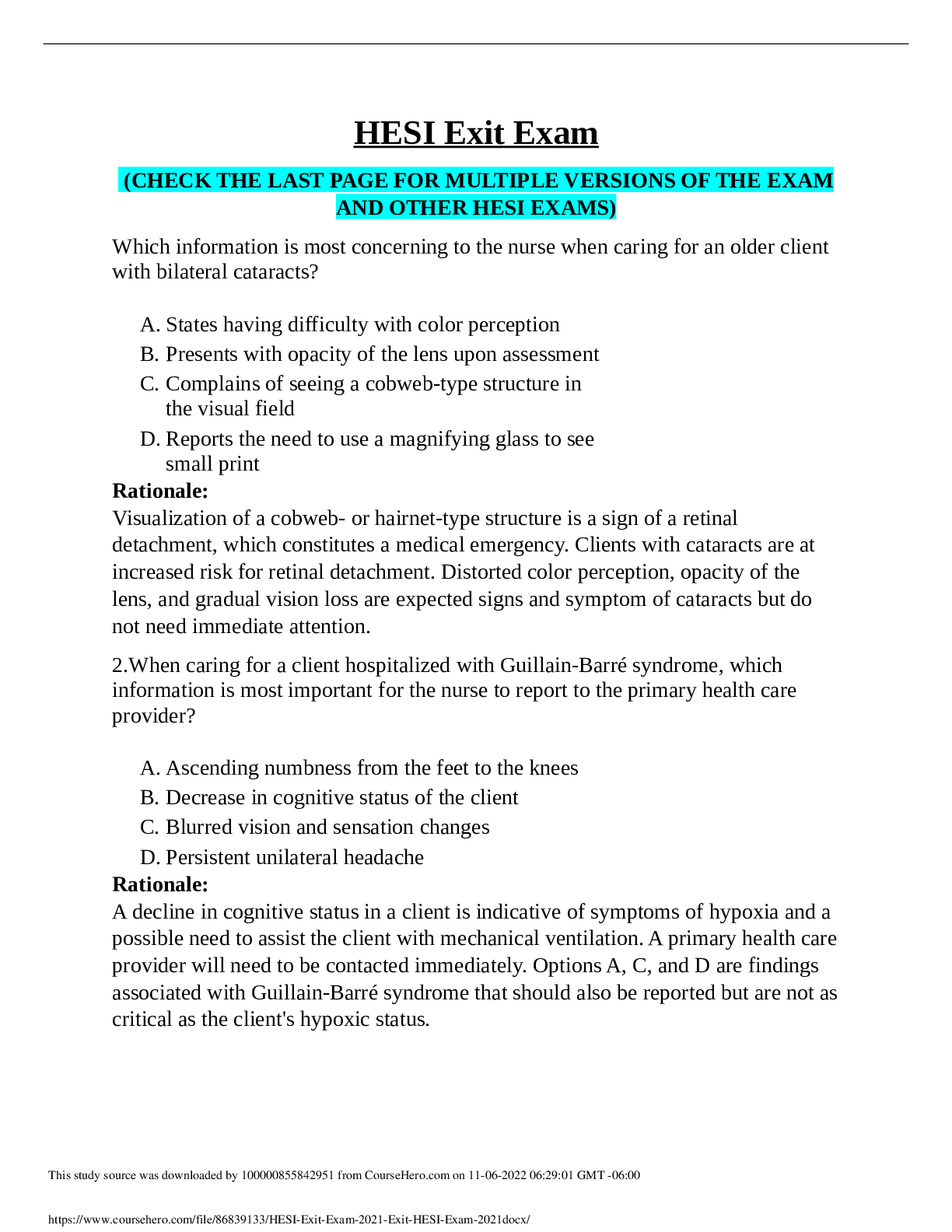
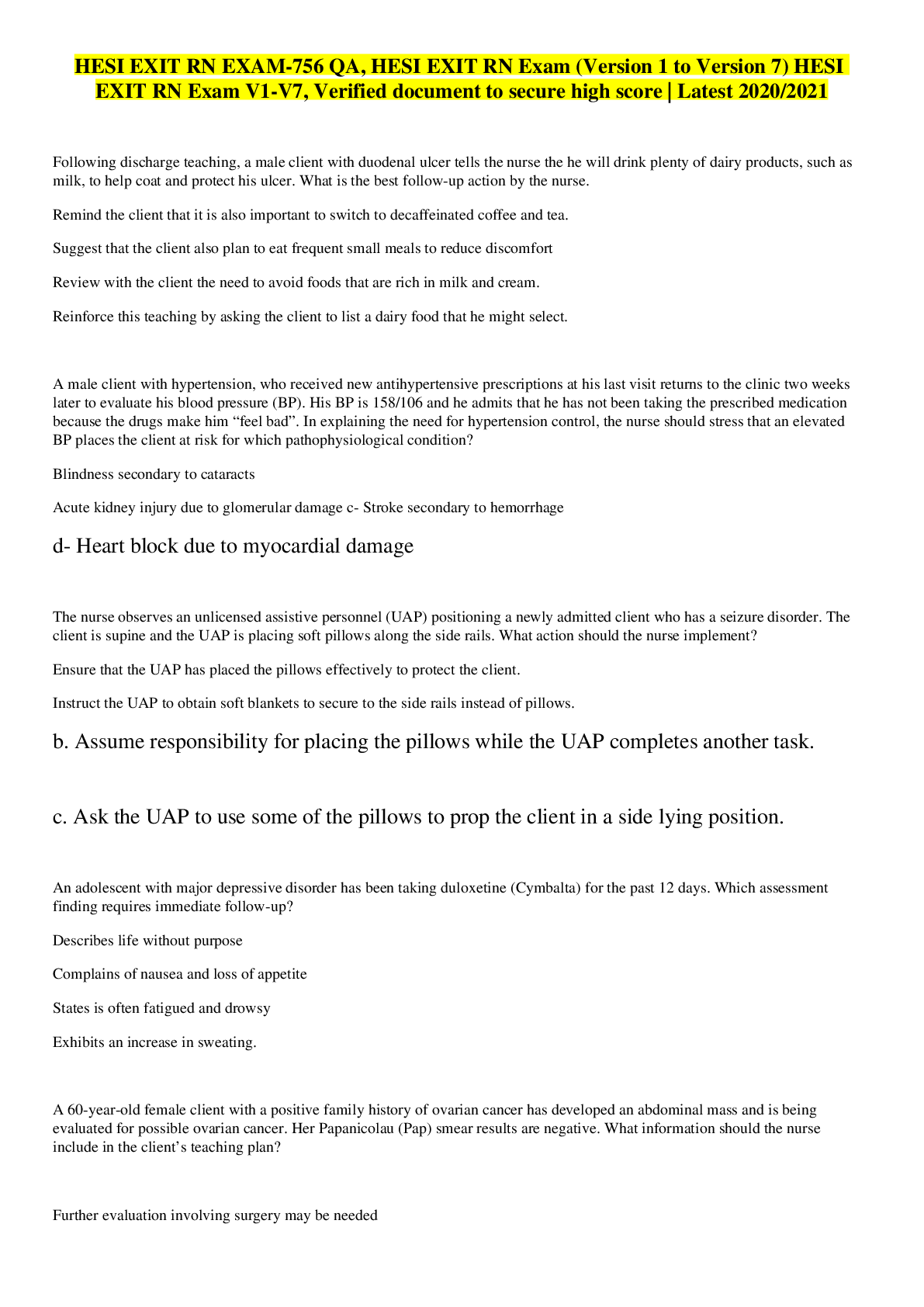
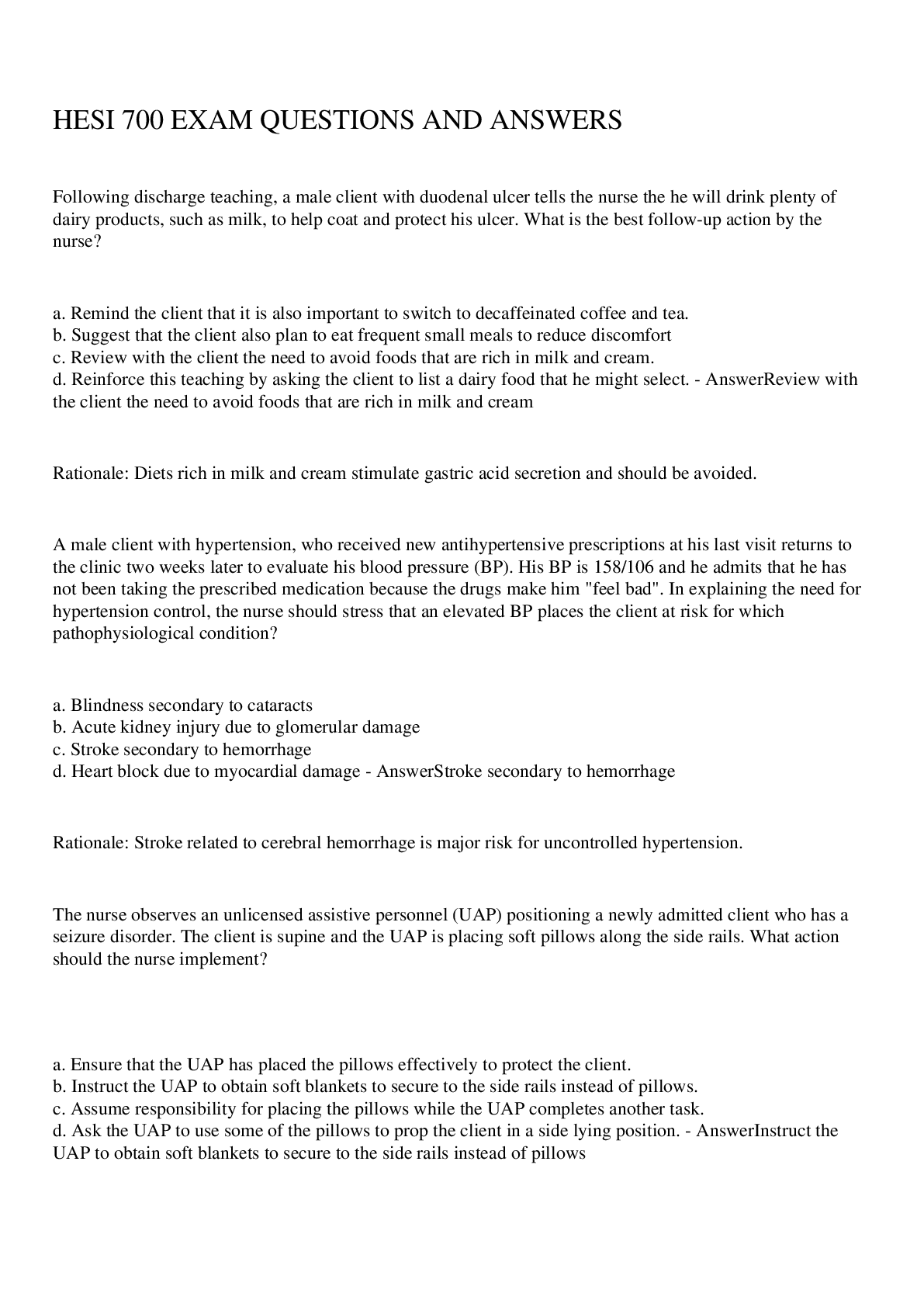
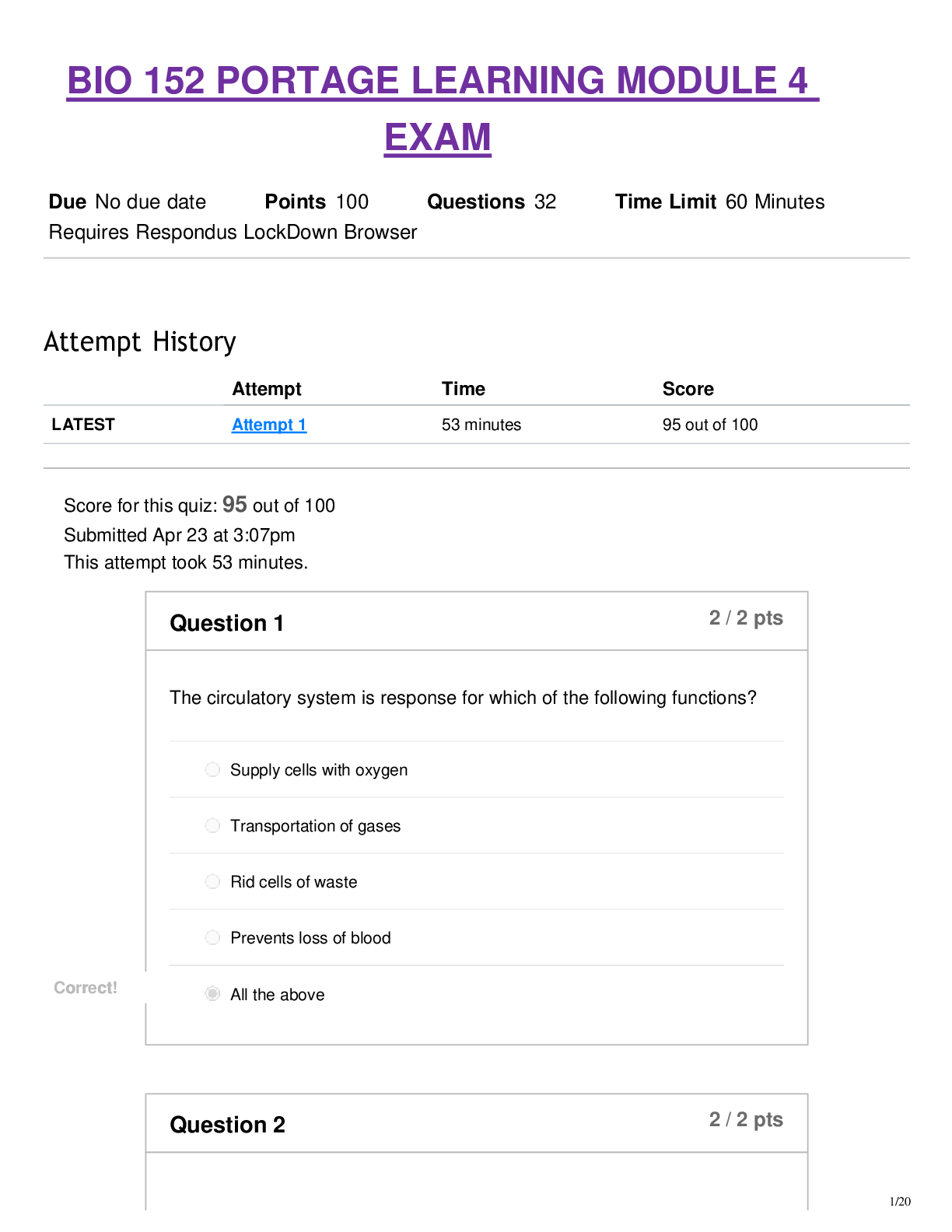
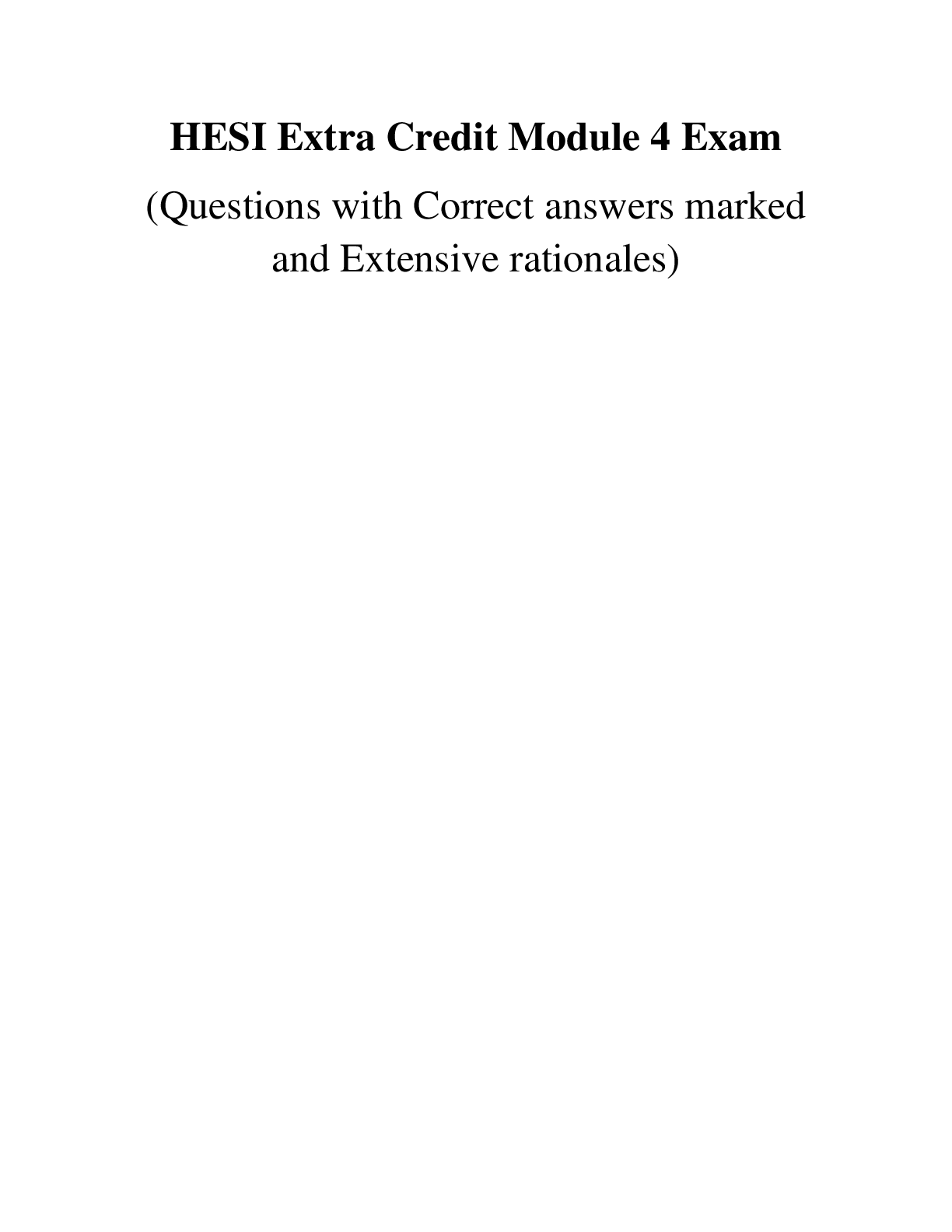
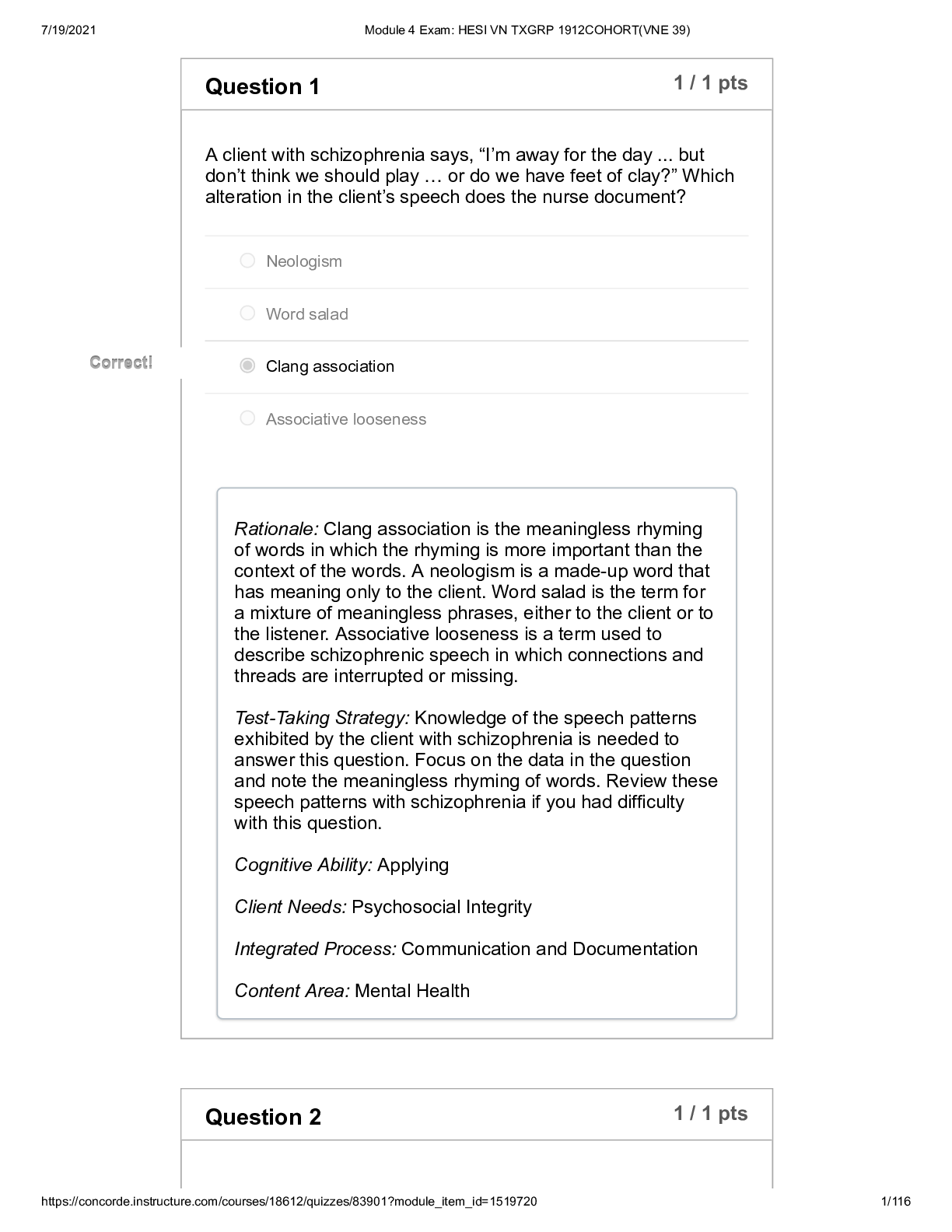
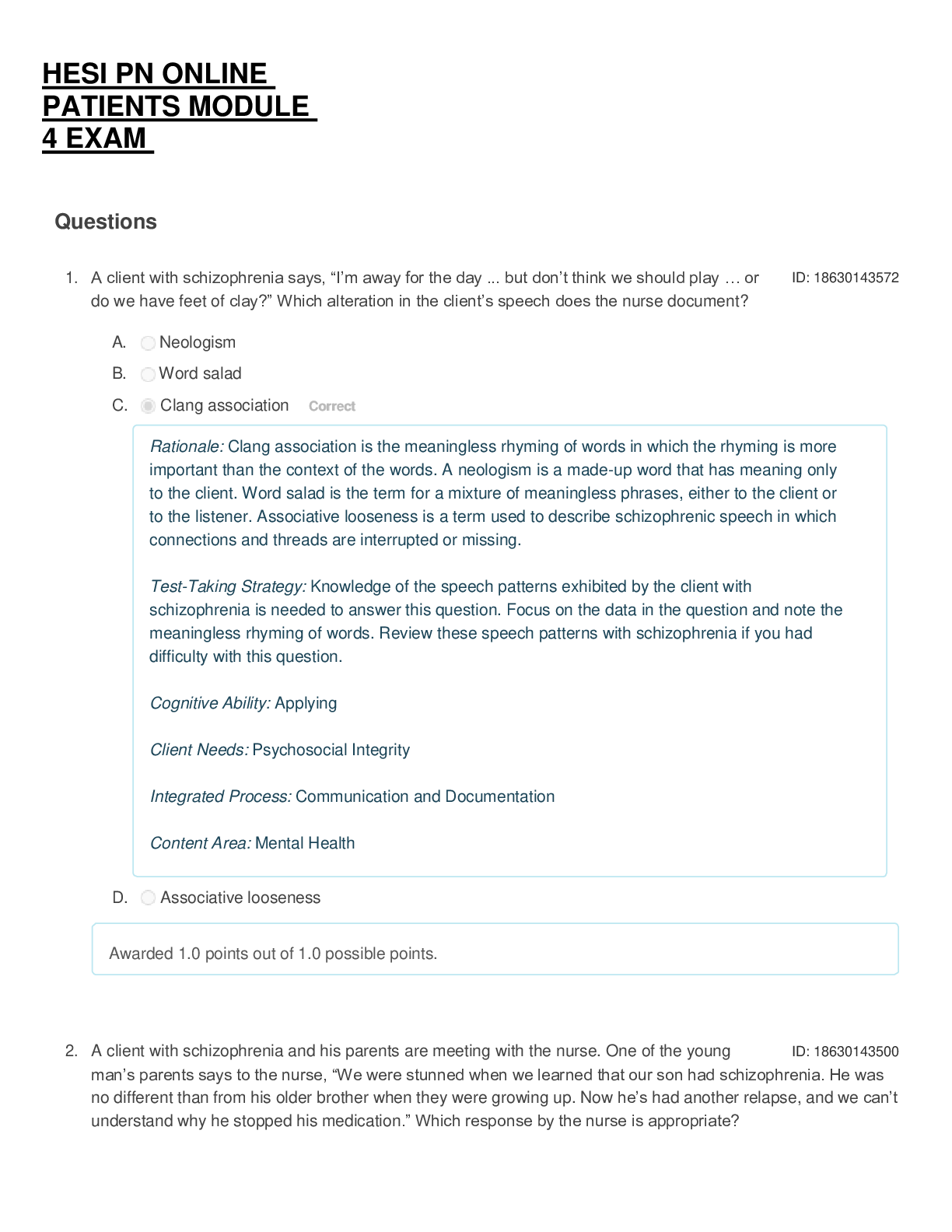
 5TH EDITION TINA CUELLAR.png)
 4TH EDITION.png)

.png)
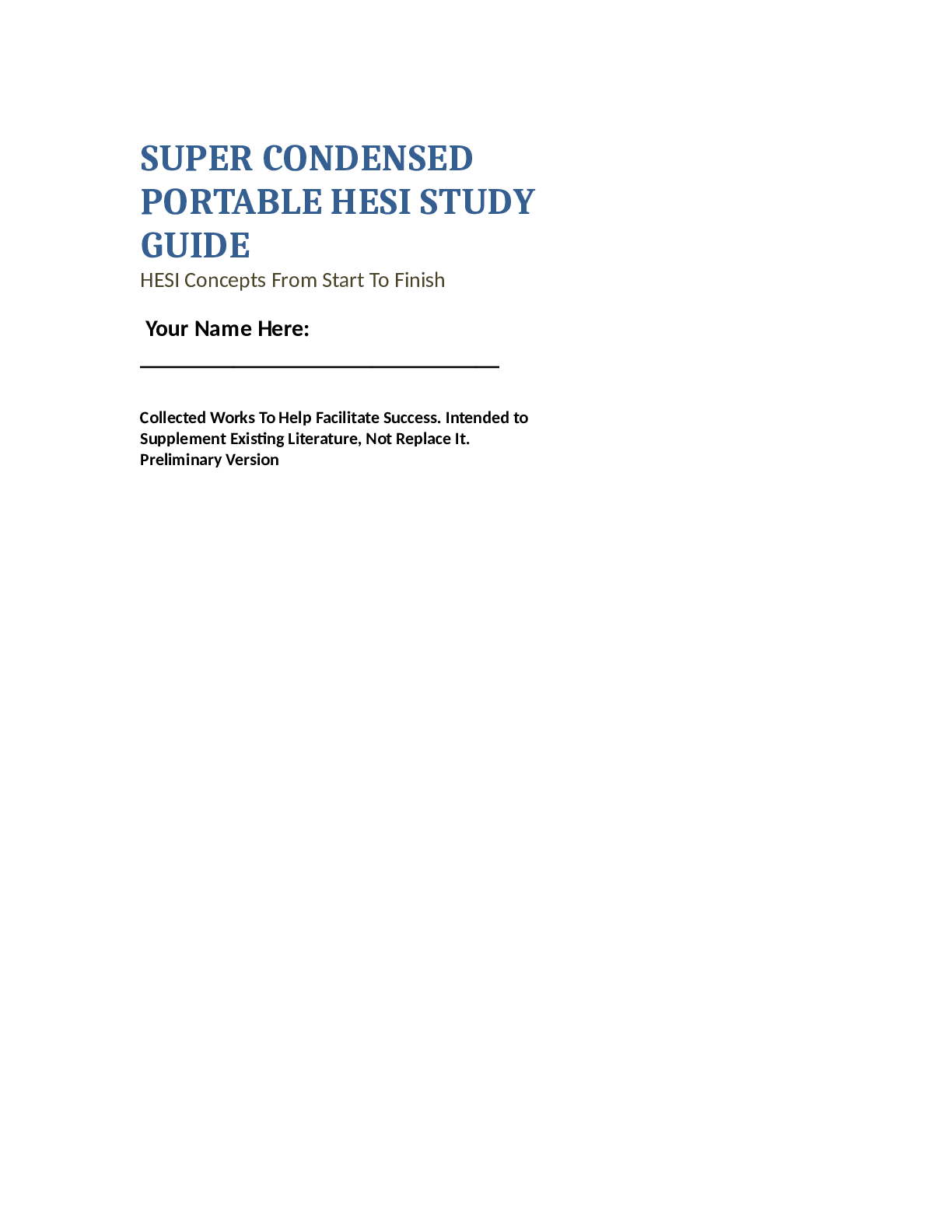
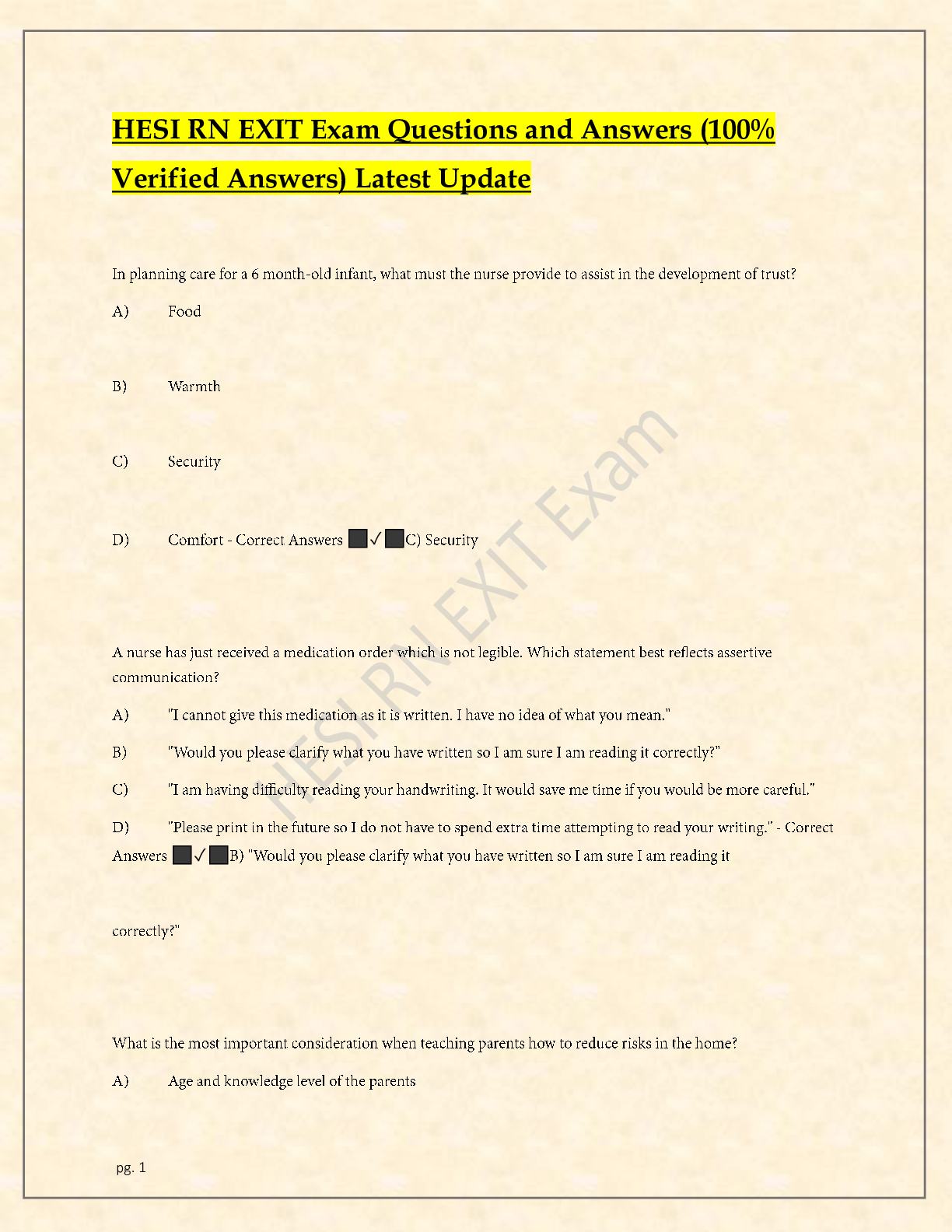
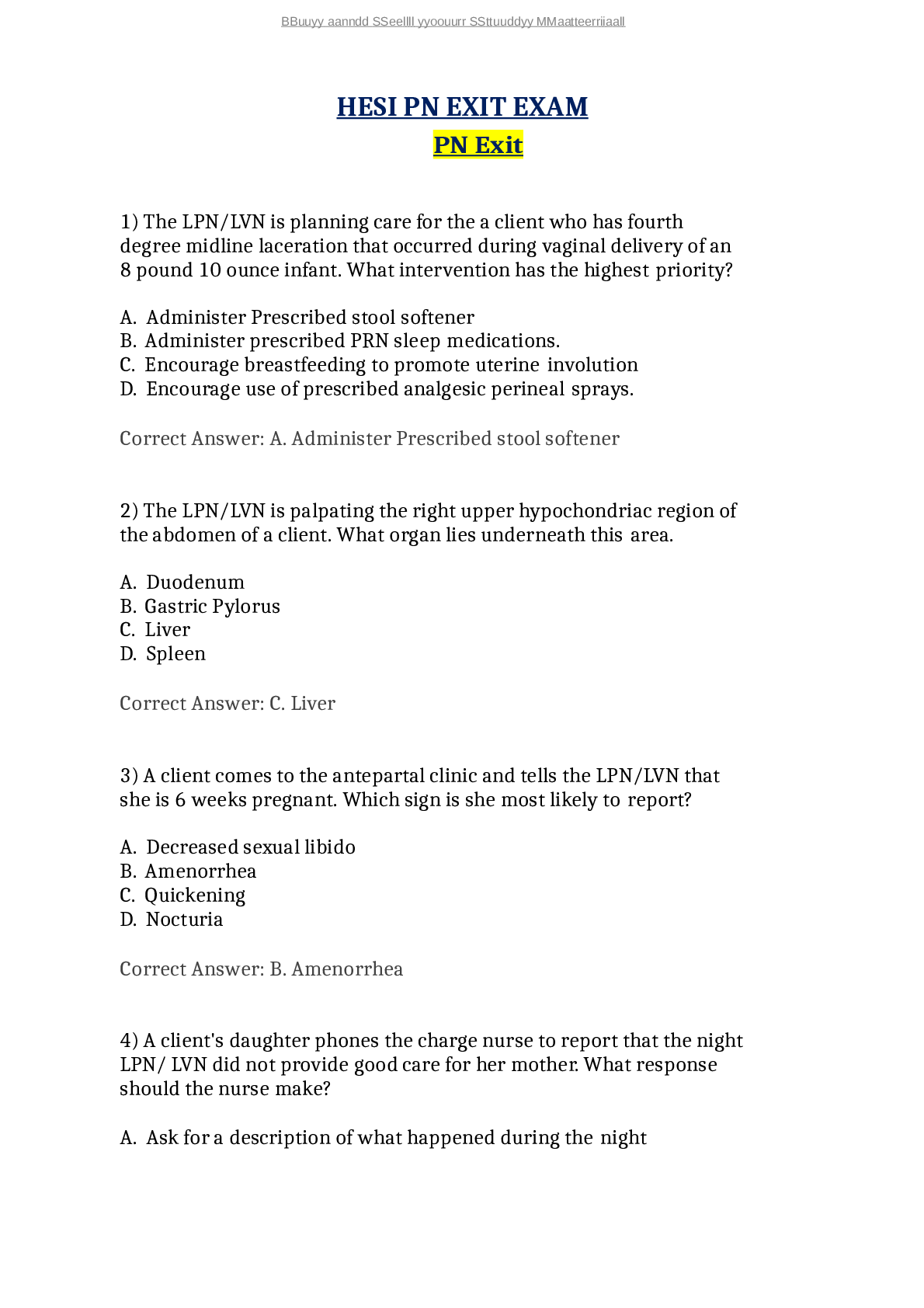
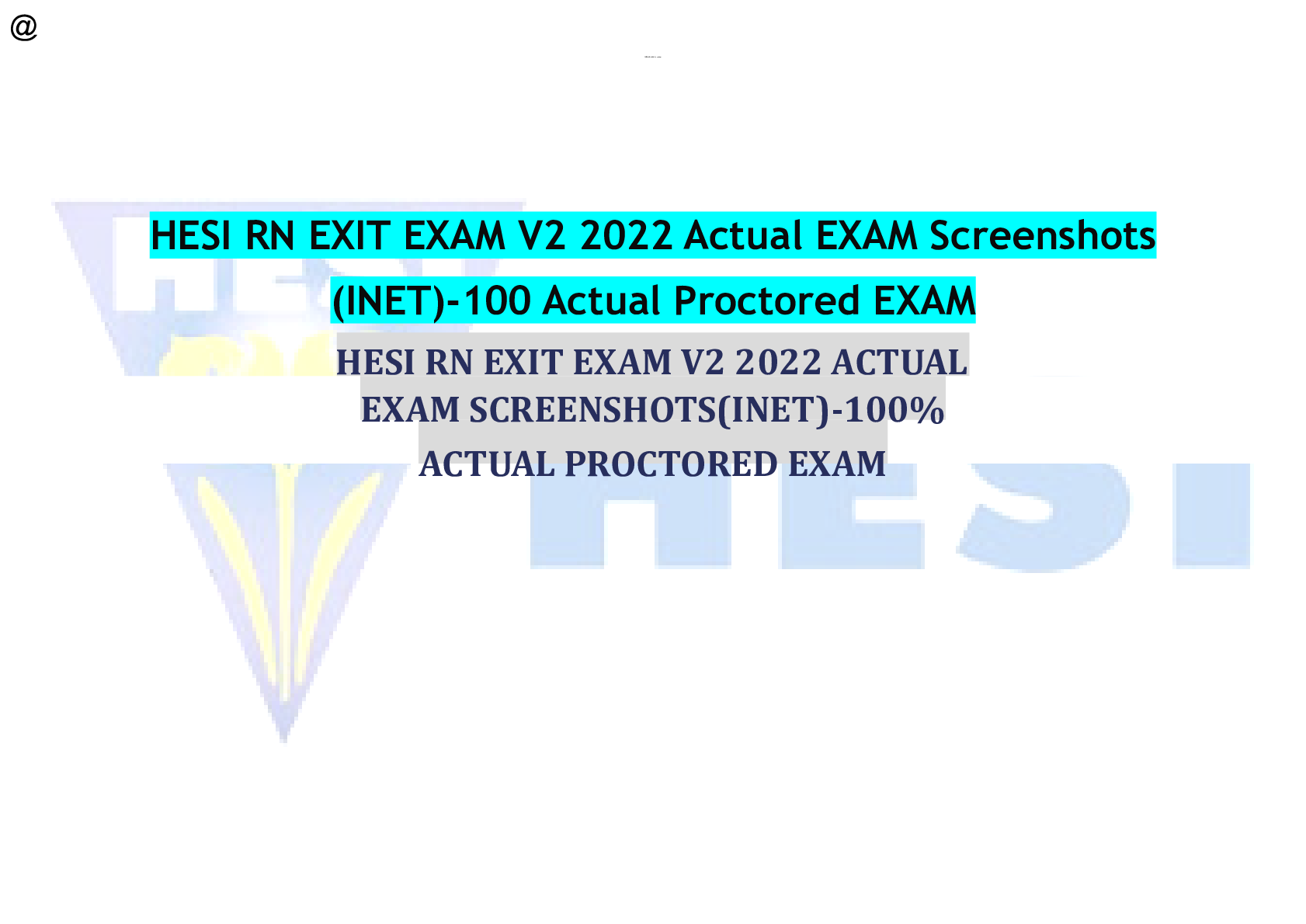
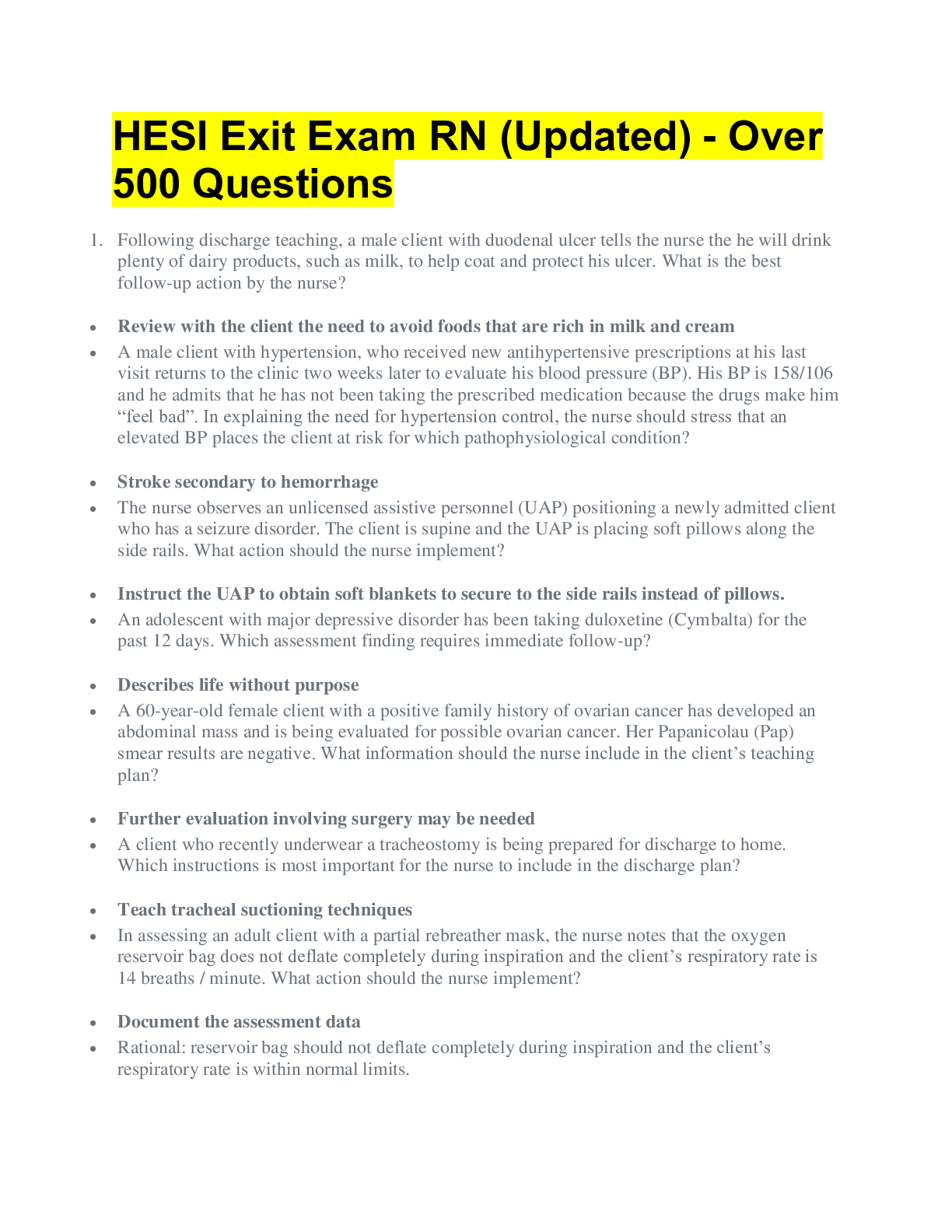
 (1).png)

